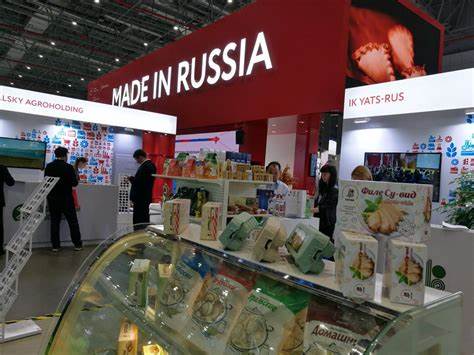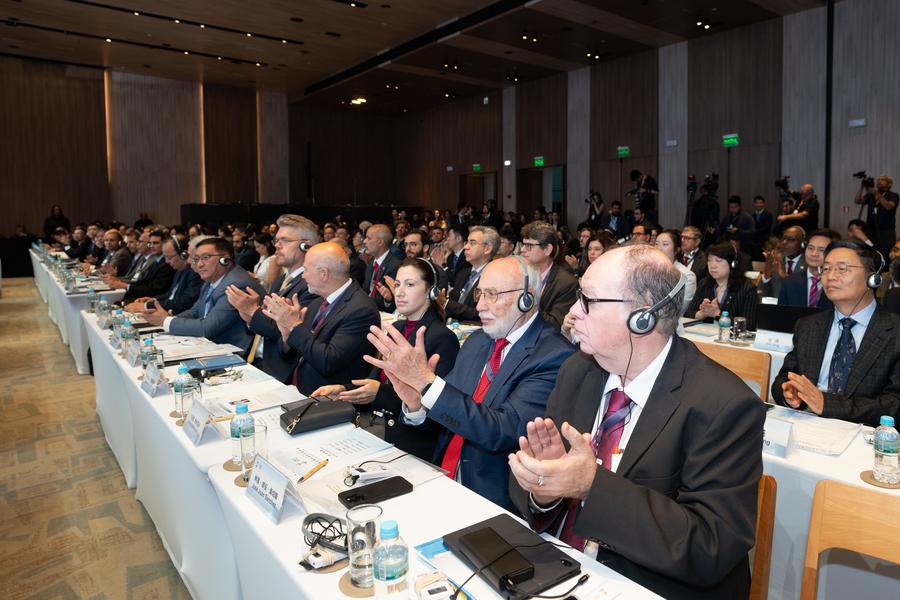by Xinhua Writer Peng Peigen
Right across the road from Moscow’s iconic Red Square, a temporary pavilion had been set up. Inside, one section was filled with rows of dazzling Russian goods, while another featured studio lights beaming down on a white desk with phone stands.
Over 100 Russian products were marketed to Chinese shoppers through livestreaming — a sales format relatively novel to many Russians. But as demonstrated by the event in the heart of Moscow, it proved to be effective.
From vodka bottled in Russian doll-shaped containers to everyday essentials like flour bags, the livestream lasted over six hours, generating sales exceeding 100 million yuan (13.9 million U.S. dollars), according to Chinese digital retail company Xinxuan, which hosted the session.
Livestream is a major driver in China’s booming online sales. Industry data show that in the first 11 months of 2024, retail sales from livestream e-commerce in China reached 4.3 trillion yuan (596.4 billion dollars), accounting for 80 percent of the overall increase in the country’s e-commerce sector.
The “Made in Russia” e-commerce event tapped into this robust trend. Organized by Russia’s Ministry of Industry and Trade in collaboration with the China Council for the Promotion of International Trade (CCPIT), the livestream session stood as the event’s final segment, after pavilion tours and speeches by both Russian and Chinese officials.
During his visit, Russian Deputy Prime Minister Dmitry Chernyshenko was shown a bottle of Russian honey. Yang Runxin, the event’s lead Chinese livestreamer, told him that 30,000 bottles had been set aside for her session.
“Probably, it would go out of stock very shortly,” she said.
Her prediction was confirmed during the livestream. According to real-time data shown on Kuaishou, a popular e-commerce platform where the broadcast was aired, orders often surged to thousands within seconds.
“The livestream e-commerce event serves as a high-speed channel linking Russian products with Chinese consumers,” said Chinese Ambassador to Russia Zhang Hanhui when addressing the event. He noted there is vast potential for cooperation between China and Russia in cross-border e-commerce.
Li Qingshuang, vice chairperson of the CCPIT, called the event an “innovative practice” in the economic and trade exchanges between the two countries, saying that it is expected to further enrich the lives of the Chinese public while benefiting both countries.
Ekaterina Korobeinikova, an employee with Russian confectionery maker Alenka, stood outside the pavilion with a colleague, watching the live stream while waiting for the company’s chocolates and cookies to appear on screen.
She said the brand first entered the Chinese market in 2018 and now has an office in Shanghai. Today, their products can be found on major Chinese e-commerce platforms such as Taobao and JD.com.
“We hope to further promote our trade with the Chinese market through livestreaming,” she said. Enditem
Source: Xinhua
Share Us



